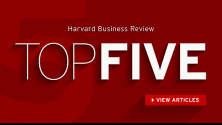DevOps engineers continue to be in high demand – not surprising, considering the title landed at number six overall on Glassdoor’s Best Jobs in America list for 2019 (and number two for tech jobs, after data scientist).
[ Read also: The great “DevOps engineer” title debate. ]
As the field of DevOps continues to grow – and as it plays an increasingly important role in businesses today – there are high stakes on both sides of the interview table. For interviewers, you must find candidates who not only possess the technical skills and experience with tools that can take your DevOps practice to the next level, but who can also help shape the DevOps culture, values, and mindset you’re trying to create in your organization.
For interviewees, you’re tasked with standing out among a wide pool of candidates eager to land a high-paying DevOps job. Each brings their own varying definitions of DevOps (and some may be better at talking the talk than walking the walk).
As with all interviews, preparation is key. We asked experts to share their go-to questions for DevOps job candidates and what they hope to learn from the responses. If you are a job seeker, read on for four qualities you should plan to highlight, regardless of the questions asked.
[ Get our free eBooks: DevOps Hiring: The Ultimate Guide and IT job searching in 2019: A practical guide. ]
7 DevOps interview questions: How to prepare answers
1. Tell me about your relationships
Seems a bit personal, doesn’t it? To be clear, the relationships in question are with current team members and managers. And the reasons to ask it go beyond checking a box for “works well with others,” says Eveline Oehrlich, chief research analyst for the DevOps Institute.
“The reason I ask how a person views his team and manager is to better understand if he or she is an individual with a growth mindset or a fixed mindset,” says Oehrlich. “Growth mindset people are able to cultivate their qualities through their effort and with the help of others. On the other hand, folks with a fixed mindset have qualities that are carved in stone, and they continually have to prove themselves.”
To get at these differences in mindsets, ask for examples around coaching, mistakes, and challenges, says Oehrlich. “I would listen for examples of times the individual has received coaching or coached someone themselves. I’d ask if they’ve made some mistakes and what they learned from them, and I’d listen for whether they position others with respect and as equals. Do they mention examples where others have challenged him or her instead of helping to feed this person’s self-esteem? I would also probe for positive and not-so-positive situations in which the individual was ready to take a risk for and with others, confront challenges, and keep working at them.”
2. Tell me about a system you had to create from the ground up
DevOps professionals should be excellent problem solvers, and this question helps to tease out those skills, says Phil Kalm, senior DevOps engineer for SaltStack.
“DevOps isn’t about one thing or technology. It encompasses many,” says Kalm. “Finding out about the candidate’s ability to logically think through a project and identify prerequisites shows the discipline a good DevOps engineer needs.”
When candidates answer this question, Kalm looks for depth and breadth of experience along with solid troubleshooting skills. “CI/CD platforms rise and fall in popularity with increasing regularity,” he notes. “Showing the mental capabilities to identify, learn, engineer, and grow a technological ecosystem is a fundamental trait.”
3. What’s your favorite technology stack, and why?
The secret to this question is that the “what” doesn’t matter – it’s the “why” and “how” behind the answer that are important, says Pete Sosnowski, VP and co-founder at Zety.
“We often look to understand candidates’ preferences, but more importantly, their working style and personality. There’s no wrong answer. What we’re interested in is the rationale behind the choice – their vision, approach/strategy, and subsequent implementation. Many roads lead to Rome, but it’s up to the interviewee to explain to us why their choice is the best or most convenient option,” says Sosnowski.
4. What does the origin represent in Git?
Let’s get into the nitty-gritty: After all, DevOps job candidates should expect specific questions related to technology and tools. Whether they have experience with these tools or not, how they answer these questions is telling, says Daniel Anson, senior manager of sustained engineering for Sungard Availability Services.
“I need to know a candidate’s familiarity with Git, as Git is the most popular and powerful DevOps tool. Having an advanced knowledge of Git is absolutely essential to success,” says Anson. “If you Google this question, there’s a very clear answer that is difficult to reword on the fly.”
And if they don’t know the right answer? Be honest, says Anson.
“I like candidates who have in-depth knowledge of tools but also are not afraid to admit what they do not know. If you understand something thoroughly, you can explain it simply. If you don’t know the answer to a question, I’d rather the candidate be transparent and honest by admitting they don’t know the answer. We use a large spread of tooling and work to develop team members’ skills so they become well-rounded as DevOps engineers.”
[ What tools help support scrum, kanban, and other agile methods? Read also: Top 7 open source project management tools for agile teams. ]
5. Tell me about yourself
Whether you are interviewing for DevOps engineer, schoolteacher, CEO, or wait staff at a restaurant, you will get this question. It’s a classic that can set the tone for the entire interview. Think about how you can highlight soft skills – such as an eagerness to learn – in your response.
“What I like to do, without giving interviewees much guidance, is to get to know them and to think about how they would fit in with our team and our organization. I ask them to tell me a little about themselves and see where they go with it,” says Martin Loewinger, director of SaaS operations for SmartBear.
“Do they talk more about their professional experience, or who they are as a person? Ideally, a strong DevOps candidate will be hungry, and eager and willing to learn new things. It’s a constant must in this ever-changing field and position. We are bombarded with new technologies and methodologies, and the best candidates aren’t intimidated by that; they demonstrate a clear desire to always learn more in order to grow.”
6. What is DevOps?
Someone interviewing for a DevOps career should know how to explain what DevOps is, right? But it’s not that simple. There are various definitions out there and lingering confusion around its related terms. (See our related articles: What is BizDevOps? and Agile vs. DevOps: What’s the difference?)
“It might seem simple or even silly, but because DevOps is a relatively new term stemming from two other concepts (agile operations and collaboration between development and operations staff), the answer to this question might not be obvious to some,” says Kacper Brzozowski, technical founder at ResumeLab.
“Avoid embarrassment. If you apply for DevOps position, get your answer to this question ready. Since there are still a few different explanations of what DevOps is, think of how you understand it. A unique, thought-through answer will help you shine like a bright star among the competition.”
7. What would you do if…?
If you are looking for a DevOps professional who can hit the ground running, ask how they might approach specific situations or challenges on the job. The answers to these situational questions can illuminate how candidates would fit into your culture as well, says Alan Zucker, founder of Project Management Essentials. Here are three questions he asks potential DevOps candidates:
What have been your first priorities when transitioning a team to DevOps?
“DevOps is primarily a cultural transformation,” says Zucker. “I am looking for an answer that focuses on people and process over technology. I want to hear how he or she would break down silos between the development and operations teams. What steps did they suggest to increase collaboration between the different groups? What challenges did they encounter? How did they overcome them?”
If you are assigned to work in an organization with a mix of new and legacy applications and technologies, what would be the first thing you would do as the new DevOps engineer?
“DevOps is focused on delivering value to the business more quickly. I am looking for an answer where the first step is to assess the environment. Conducting a value stream analysis is a great first step. Developing a strategy that stratifies the applications based on their need for speed and agility (Paced-Layered Strategy) is also a good answer,” says Zucker. “I want to see that the DevOps engineer is being thoughtful about what should be done rather than talking first about tools and technologies.”
If the organization had fully adopted a continuous integration tool and a competitor came out with a slightly better product, what would you recommend that the organization do? Stay with the current tool or switch to the competitor?
“Many technologists will immediately jump to the new, shiny technology,” says Zucker. “I want to see the candidate ask questions about the cost of the two tools and the cost of transitioning to the new tool. Transition cost should include training and effort expended for moving the existing applications and components into the new tool.”
What else should you highlight? Let’s talk about four personal qualities:








Comments
thank you very nice website article